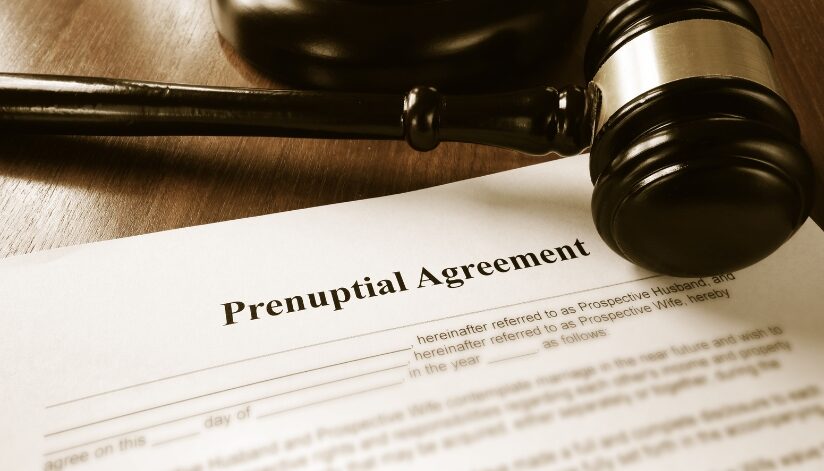How Prenuptial Agreements Work In Wisconsin
By Renee Dehn, Family Law Attorney
For many engaged or newly married couples, the idea of signing a prenuptial agreement (commonly known as a “prenup”) can feel uncomfortable or even unromantic. But in reality, a well-crafted prenup can be a practical tool for protecting each person’s financial future—especially in a state like Wisconsin, where marital property laws follow the community property model. At Bosshard Parke, we help couples throughout La Crosse, Sparta, and western Wisconsin understand how prenuptial agreements work, what they can include, and when they’re enforceable under Wisconsin law. Whether you’re preparing for marriage or simply planning ahead, here’s what you need to know.
What Is A Prenuptial Agreement?
A prenuptial agreement is a legal contract between two people who are planning to get married. The agreement outlines how assets, debts, and property will be handled during the marriage and in the event of divorce or death. In Wisconsin, prenups are governed by contract law and must meet specific legal standards to be enforceable.
Why Consider A Prenup In Wisconsin?
Wisconsin is a community property state, meaning that most property and debts acquired during the marriage are considered jointly owned—even if only one spouse earned or purchased them. Without a prenup, this property is typically divided 50/50 in a divorce.
A prenuptial agreement can:
- Define what is considered separate vs. marital property
- Protect family inheritances or business interests
- Address responsibility for premarital debts
- Outline spousal support or alimony terms
- Reduce legal costs and uncertainty in the event of divorce
What Can A Prenup Include?
Prenuptial agreements in Wisconsin can cover a wide range of financial matters, including:
- Division of real estate, savings, and investments
- Ownership of businesses or professional practices
- Retirement accounts and future pensions
- Responsibility for student loans or credit card debt
- Provisions for children from previous relationships
However, prenups cannot include agreements about child custody or child support. These issues are always decided by the court based on the best interests of the child at the time of divorce or separation.
When Are Prenups Enforceable In Wisconsin?
For a prenuptial agreement to be valid and enforceable in Wisconsin, it must meet several key requirements:
- Voluntary Consent: Both parties must enter into the agreement willingly, without coercion or pressure.
- Full Financial Disclosure: Each party must provide a complete and accurate picture of their income, assets, and debts before signing.
- Fair and Reasonable Terms: The agreement cannot be unconscionably one-sided or unjust at the time of enforcement.
- Proper Execution: The agreement must be in writing and signed by both parties before the marriage takes place.
If any of these conditions are not met, a court may declare the prenup invalid during divorce proceedings.
What About Postnuptial Agreements?
Wisconsin also recognizes postnuptial agreements—contracts made after a couple is married. Courts consider the fairness of the substantive terms as of the execution of the agreement and also look to see if at the time of the divorce there have been significant changes of circumstances after the agreement was entered into. Like prenuptial agreements, postnups can be used to clarify property rights and responsibilities.
Should You Work With An Attorney?
Because prenups involve complex legal and financial considerations, it’s wise for both parties to work with independent legal counsel. An attorney can:
- Draft a prenup tailored to your unique circumstances
- Ensure the agreement complies with Wisconsin law
- Help avoid ambiguities that could cause future disputes
- Protect your rights and assets in the event of divorce
Bosshard Parke Can Help You Plan With Confidence
Prenuptial agreements aren’t just for the wealthy—they’re for anyone who wants to enter marriage with transparency, fairness, and peace of mind. At Bosshard Parke, our experienced family law attorneys can guide you through the process, answer your questions, and draft a legally sound agreement that reflects your values and protects your future.
If you’re planning to get married and considering a prenup in Wisconsin, contact our offices in La Crosse or Sparta to schedule a confidential consultation.
Disclaimer: This blog post is for informational purposes only and does not constitute legal advice. For personalized guidance, please consult an attorney at Bosshard Parke.
Article by Renee Dehn, family law attorney at Bosshard Parke Ltd. For more information on how prenuptial agreements work in Wisconsin, contact her at 608-782-1469.





